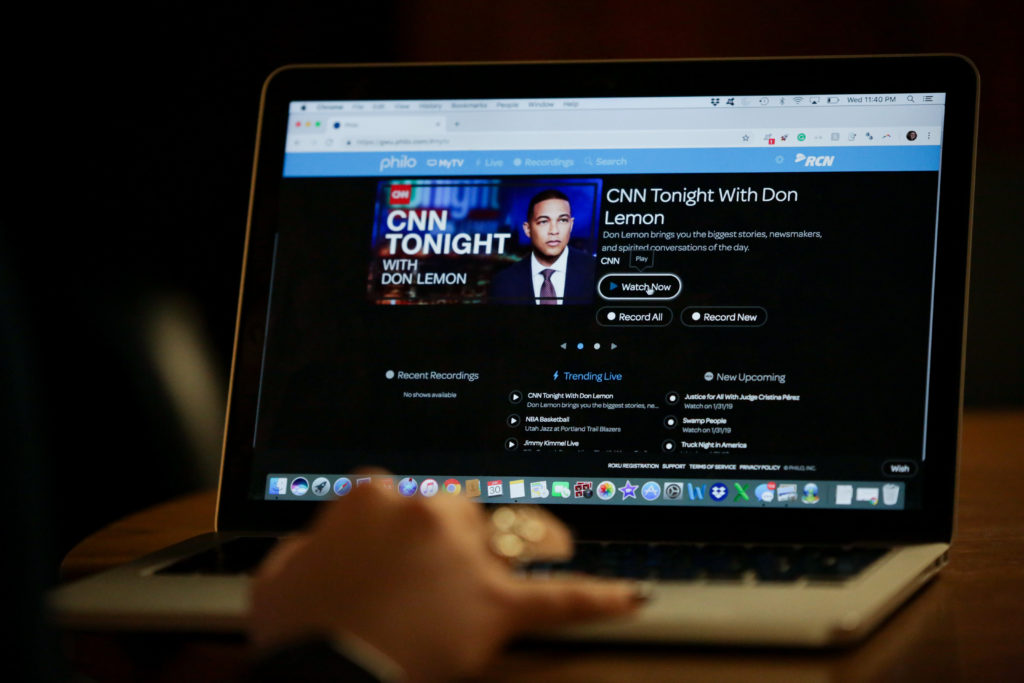After using Philo to watch TV for more than two years, students may use a new streaming service next semester.
The Division of Information Technology is currently evaluating options for a new TV service as its multiyear contract with Philo comes to a close this academic year. Officials are currently soliciting feedback from students, faculty and staff to identify what community members want in a new service before they request proposals later this semester, Chief Information Officer Loretta Early said.
Philo, GW’s first high-definition TV service, offers students free access to HBO Go, on-demand TV shows and movies as well as live TV channels like ABC, Fox and NBC. Officials contracted Philo in 2016, six years after GW first switched from analog to digital TV in 2010.
“The technology has matured significantly over the last three years and it is time to revisit available options and solutions,” Early said in an email.
The Division of Information Technology hosted a feedback session for Philo users earlier this month to gauge students’ experiences and note what they would like to improve. The department also plans to issue a survey to community members later this semester to garner additional feedback, Early said.
Early declined to say how many students attended the session but said attendees indicated that they prefer streaming services over access to traditional cable networks and enjoy the platform’s channel selection. But students also thought the service’s “navigation is not too intuitive” and said they would like the next service to be compatible with more streaming devices, Early said.
Philo currently only works with Roku-brand televisions, she said.
“We will use this feedback to inform our meetings with Television content providers to select our next television over internet (IPTV) service for administrative and residential use,” Early said.
She said officials will solicit proposals from providers before spring break. Officials plan to hold demonstrations this semester for students, faculty and staff to test potential new services, she said.
“We have collected preferred requirements from students, faculty and staff who live on campus, and administrative offices,” Early said.
Officials plan to implement the new service by next academic year, Early said.
Information technology experts said collecting feedback from students ensures that the new streaming service will be utilized by the largest population of the GW community.
Allan Gyorke, the associate vice president of information technology at the University of Miami, said he meets with representatives from the student government every two weeks to discuss concerns and suggestions about the IT department’s offerings.
Hosting in-person sessions for students to talk about problems presents the opportunity for students and staff to gather anecdotal information that they could not pick up from a survey, Gyorke said.
“Sometimes the best ideas come from students,” he said. “We’re often stuck in the way we think things should be done.”
Mike Alstrom, the chief information officer at Muskegon Community College in Michigan, said continuously gathering feedback allows the administration to be certain rather than guess at what their students want. He said research shows that even though some administrators may be confident in their belief that they know what students think, they cannot know for sure without surveys and focus groups.
“Feedback provides a conduit through which higher educational institutions can learn what is truly important to the students they serve,” he said in an email.





